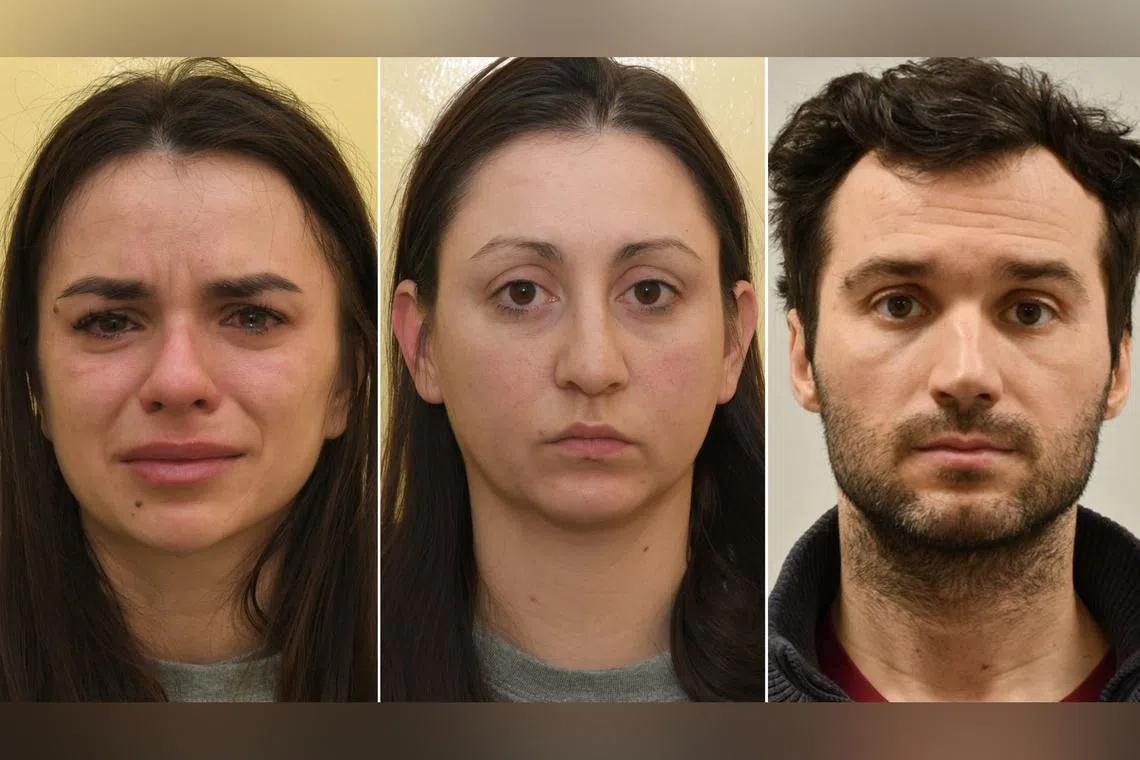Bulgarians convicted in Britain of being Russian spies working for Wirecard fugitive
Sign up now: Get ST's newsletters delivered to your inbox

(From left) Bulgarians Vanya Gaberova, Katrin Ivanova and Tihomir Ivanchev were convicted of conspiracy to gather information useful to an enemy between August 2020 and February 2023.
PHOTO: METROPOLITAN POLICE UK
Follow topic:
LONDON – Three Bulgarians were found guilty in a London court on March 7 of being part of a Russian spy unit run by Wirecard fugitive Jan Marsalek to carry out surveillance for the Kremlin on a US military base and individuals targeted by Moscow.
Katrin Ivanova, 43, Vanya Gaberova, 30, and Tihomir Ivanchev, 39, were convicted at London’s Old Bailey court, charged with conspiracy to gather information useful to an enemy between August 2020 and February 2023, which they denied.
Prosecutors said the trio – along with Orlin Roussev and Bizer Dzhambazov, who had admitted being part of the conspiracy before the trial started – carried out surveillance on journalists and planned to stage a fake protest outside the Kazakh embassy in London.
Marsalek also tasked the team of Bulgarian nationals to spy on Ukrainian soldiers being trained at the US base in Germany, with a view to tracking their movements on the battlefield after Russia’s 2022 invasion, prosecutors said.
The Austrian national is wanted by the German authorities as the former chief operating officer of collapsed payments company Wirecard, accused of a multi-billion euro fraud.
Marsalek’s current whereabouts are unknown, but he is believed to be in Russia.
Ivanova, Gaberova and Ivanchev all pleaded not guilty to one count of conspiracy to gather information useful to an enemy, saying they did not know they were helping Russia.
But they were convicted, and Ivanova was also found guilty of possessing false identity documents. REUTERS

